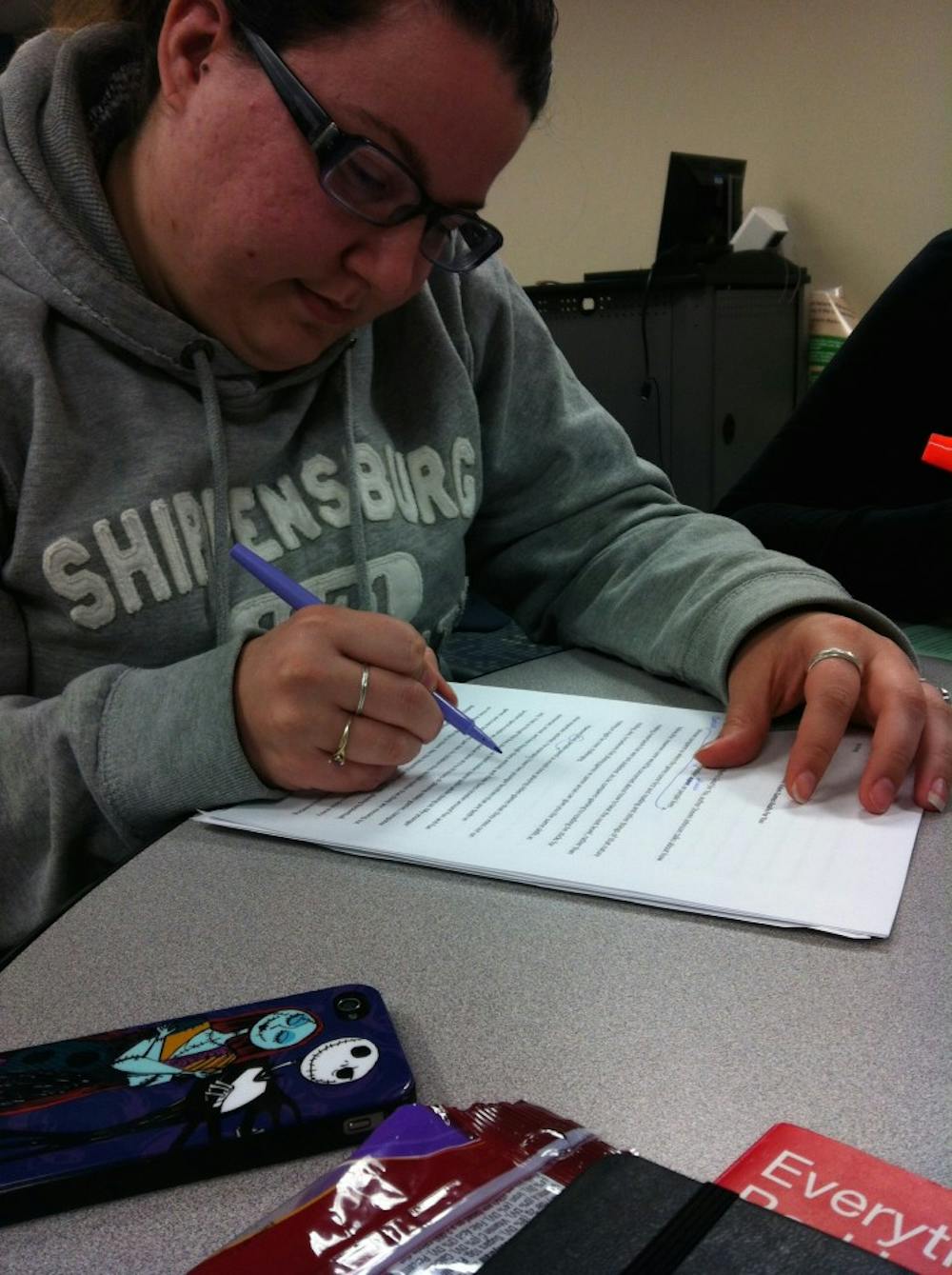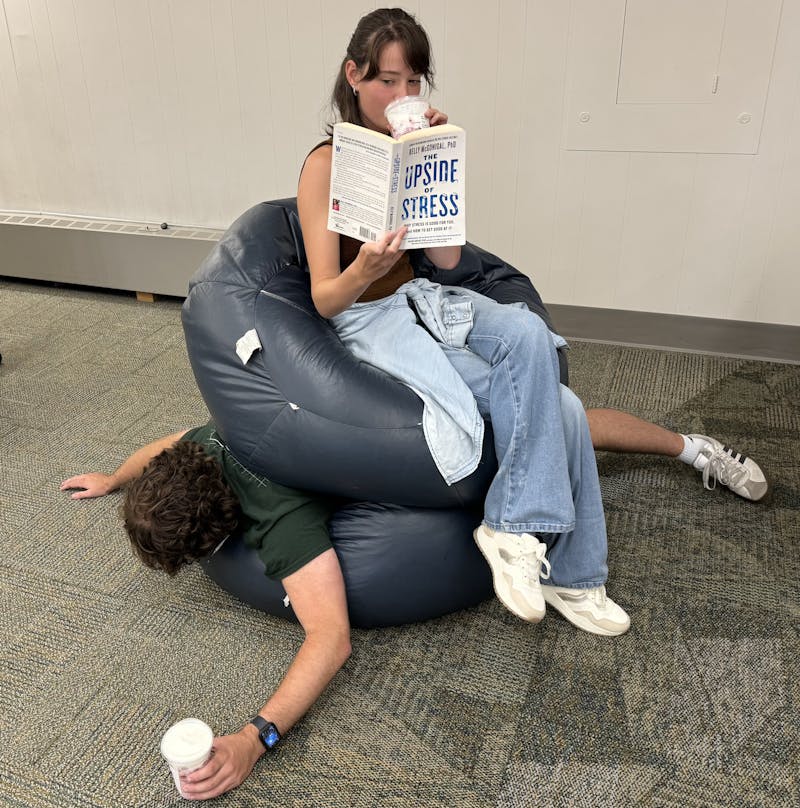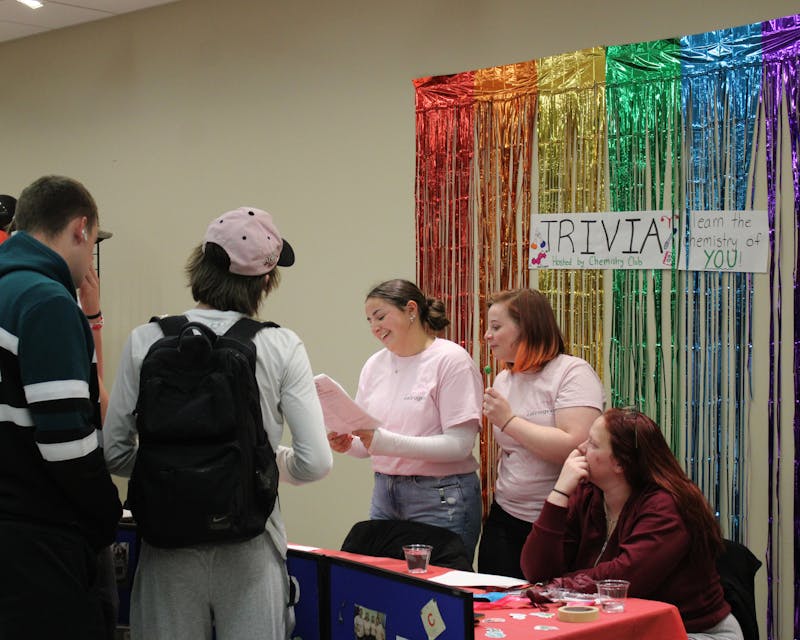At 27 years old, Sheila Foster is working toward her fourth college degree.
After earning bachelor’s degrees in psychology and athletic training from Indiana University of Pennsylvania and a master’s degree in sports psychology from the University of North Carolina at Greensboro, Foster returned to school, enrolling in Shippensburg University’s English secondary education program.
While teaching a writing-intensive college level sports history course, Foster realized that what she really loved to do was help students write.
“I realized that what I really enjoyed doing wasn’t the content side of it, but it was more helping students learn how to write, so that’s why I ended up kind of changing my life goals and coming back to school,” Foster said.
“I had to figure out what I wanted to do. I realized I really liked helping people with writing and — bonus — I really love reading,” Foster said. “I thought that translated to an English degree.”
In addition to being a full-time student, Foster is a faculty member. She works in The Learning Center, where she is a writing specialist and the writing studio tutor coordinator. Foster is also involved with SU’s writing fellowship program.
According to the writing fellows webpage, the program is a partnership between The Learning Center and the English department. Foster said the goal of the program is to help first-year students who do not have the skill set needed to succeed in writing intensive first year seminar (WIFYS), a required course for all students.
According to Sandra Smith, assistant professor of English, basic writers are identified based off the essay they write as part of the university admissions process. The essays are scored by faculty members, and that score determines if the student should be placed into basic writing.
Every section of basic writing has an assigned tutor who sits in on every class and runs weekly tutoring sessions that the students are required to attend. Foster and Smith are partnered together.
“Writing is a very complex skill and involves a very complex skill set. The more support these students can get the better off they are,” Smith said.
One particular student felt Foster should be recognized for the support she provides.
“They have a luncheon for the students and the student brings along someone from the faculty and staff who they believe has helped them become successful,” Foster said.
The student, who cannot be identified due to confidentiality restrictions, invited Foster to the event.
“That was one of the biggest, awesome rewards for me was having a student recognize that I really was helpful in that semester,” Foster said.
Foster said she finds everyday aspects of her job rewarding as well.
“Seeing a student who didn’t think they could revise an essay get it to where they want it to be, seeing them get a grade back and being really happy with what they got, them noticing that they actually made progress. Those are the things that get me to keep doing this,” Foster said. “Those are my rewards.”




The Slate welcomes thoughtful discussion on all of our stories, but please keep comments civil and on-topic. Read our full guidelines here.